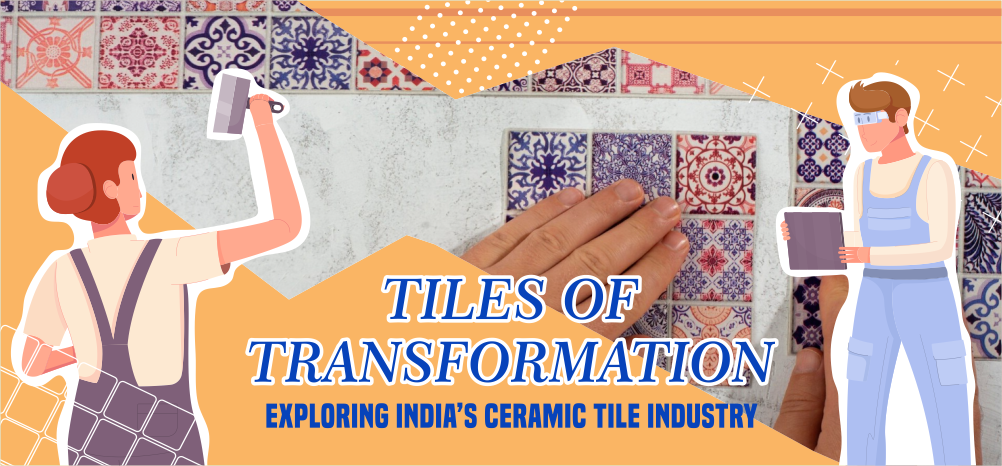India occupies a significant position in the global education sector, with one of the world’s largest networks of higher learning institutions. With nearly 26% of the population in the 0-14 age group, the sector offers immense opportunities for growth and long-term development.
Number of colleges in India reached 52,321 in FY26 (as of November 2025), up from 42,343 in FY20. While number of universities in India reached 1,355 in FY26 (as of November 2025), up from 760 in FY15.
India’s education market is projected to reach Rs. 26,94,617 crore (US$ 313 billion) by FY30. Within this, higher education, valued at Rs. 5,75,000 crore (US$ 68.06 billion) in 2024, is expected to nearly double to Rs. 11,60,000 crore (US$ 134.84 billion) by 2033, growing at a CAGR of 8.10%.
Online and technology-driven learning are transforming the landscape. The online education market is expected to expand by US$ 2.28 billion between 2021 and 2025 at a CAGR of almost 20%, while the Indian edtech sector, currently valued at Rs. 64,875 crore (US$ 7.5 billion) is projected to grow nearly fourfold to Rs. 2,50,850 crore (US$ 29 billion) by 2030. Increasingly, higher education institutes are developing digital programmes to meet this rising demand.
From April 2000-June 2025, Foreign Direct Investment (FDI) equity inflow in the education sector stood at Rs. 96,558 crore (US$ 10.82 billion). With strong fundamentals, a young population, and rapid digital adoption, India’s education sector is poised for sustained growth.
Coursera is expanding GenAI skills in India through partnerships with 18 leading universities, including IITs, IIMs, and BITS Pilani, along with Fractal Analytics for industry-focused courses. Its AI tool Coach has boosted course completion rates, especially among women and learners from weaker academic backgrounds, with generative AI course enrolments rising 107% YoY to 2.6 million as of August 2025, the highest globally.
In May 2025, the Indian Institute of Foreign Trade (IIFT) opened its first overseas campus in Dubai, advancing India’s higher education globalisation under NEP 2020 and serving global learners and the Indian community abroad.
There has been a significant increase in the share of state private universities as part of total universities. In FY26, 37.5% of universities in the state were state private universities and 34.8% were state public universities.
Imarticus Learning has announced a partnership with PwC Academy in India to provide digital-savvy professionals with expertise in Generative AI (GenAI), as stated in a recent announcement in February 2025.
India’s large English-speaking population allows easy delivery of educational products. 54 Indian institutes, including the Indian Institute of Science (IISc) Bengaluru and eight IITs got featured among the top 500 universities in the QS World University Rankings CY26.
In the QS World University Rankings: Asia 2025 India stands out with two universities in the top 50 and seven in the top 100, led by the Indian Institute of Technology Delhi (IITD) at 44th place.
India along with UK rank third for the most numbers of universities in Times Higher Education University Rankings CY25.
The Government of India’s Rs. 60,000 crore (US$ 7.02 billion) ITI modernisation scheme will upgrade 1,000 institutes in partnership with leading corporates and train two million youth in five years. The programme will align training with industry needs, overseen by a National Steering Committee and supported by global lenders.
In November 2025, PhysicsWallah, an Indian education technology company, saw its Rs. 3,480 crore (US$ 390 million) initial public offering list at a 33-42% premium to its issue price, marking one of the strongest new-age market debuts of the year.
In H1 2025, India’s edtech funding rebounded with a fivefold surge to approximately Rs. 1,071 crore (US$ 120 million) across 11 deals, driven by AI-led startups and renewed investor confidence.
On August 17, 2025, the University of Delhi (DU) partnered with Google Cloud to offer students training in artificial intelligence, cloud computing, cybersecurity and data analytics, along with industry-recognised certifications, hackathons and startup-incubation support.
On May 17, 2025, the IIT Bombay announced plans to open its first global campus in Japan in collaboration with Tohoku University, opening new avenues for international research and student exchange.
In May 2025, Oracle, in collaboration with Andhra Pradesh State Skill Development Corporation, began digitally training 400,000 students in emerging technologies including Oracle Cloud, AI, Data Science, DevOps, and Security through over 300 hours of structured learning on Oracle MyLearn. The programme provides certifications and skill badges to enhance employability and prepare youth for future technology roles.
In January 2025, CL Educate Limited acquired NSEIT Limited’s Digital Exam Assessment (DEX) business for Rs. 230 crore (US$ 26.6 million) upfront and Rs. 75 crore (US$ 8.7 million) earn-out, entering India’s Rs. 7,000 crore (US$ 809.5 million) assessments market.
In September 2024, PhysicsWallah raised 1,774 crore (US$ 210 million) from Hornbill Capital and Lightspeed at a Rs. 23,657 crore (US$ 2.8 billion) valuation to expand operations, with SEBI having approved its IPO in July 2025.
In October 2024, edtech firm Eruditus raised Rs. 1,267 crore (US$ 150 million), in a funding round led by US-based TPG Rise, with participation from global investors including SoftBank Vision Fund 2, Accel, and CPP Investments.
Union Minister for Education, Mr. Dharmendra Pradhan, announced the establishment of three AI Centres of Excellence (CoE) in New Delhi, focusing on Healthcare, Agriculture, and Sustainable Cities. These CoEs, aimed at realizing the vision of "Viksit Bharat," will be led by leading educational institutions in collaboration with industry partners and startups.
Amazon launched its global computer science education initiative in India. The aim of this initiative was to offer one lakh students the opportunity to study computer science. Amazon India also launched the second edition of Machine Learning (ML) Summer School, with the aim to provide students the opportunity to learn important ML technologies from Amazon scientists, making them ready for careers in science.
To liberalise the sector, the Government has taken initiatives such as the National Accreditation Regulatory Authority Bill for Higher Educational and the Foreign Educational Institutions Bill. The government schemes of Revitalising Infrastructure and System in Education (RISE) and Education Quality Upgradation and Inclusion Programme (EQUIP) are helping the government tackle the prominent challenges faced by the education sector.
The National Education Policy (NEP), which will be fully implemented over the course of this decade starting from 2021-22, will have a strong focus on high-quality vocational education. Under the National Education Policy 2021, the government will set up regional and national institutes for virology, >15,000 schools, 100 new Sainik schools, and 750 Eklavya model residential schools in tribal areas.
The Union Cabinet, led by Prime Minister Mr. Narendra Modi, has approved the PM Vidyalaxmi scheme, aimed at providing financial support to meritorious students to ensure that financial constraints do not hinder their pursuit of higher education. This initiative aligns with the recommendations of the National Education Policy.
The Central Government approved the “New India Literacy Programme” for the period FY22-27 to cover all the aspects of adult education to align with the National Education Policy 2020 and Budget Announcements 2022-23.
In July 2025, The Ministry of Minority Affairs launched the Pradhan Mantri Virasat Ka Samvardhan (PM VIKAS) scheme to empower minority communities through skill development, entrepreneurship, women’s leadership training, education, and cultural heritage promotion.
In March 2025, IIT Guwahati is developing “Gyandhara,” India’s first VR-enabled metaverse platform, to teach maths and science in local languages at PM Shri schools, starting with a pilot in 56 schools in Assam later this year.
STEM-based edtech companies have been partnering with Niti Aayog and the government to build a STEM ecosystem by establishing Atal Tinkering Labs (ATL) to spread knowledge about STEM, STEAM, AI, ML, and robotics for K-12 students.
Going Global Partnerships launched UK-India Industry-Academia TNE Grants 2025-26, offering up to US$ 23,294 for projects starting September 30, 2025, to foster UK-India education and industry collaboration.
In May 2025, The Indian Institute of Foreign Trade (IIFT) opened its first overseas campus in Dubai, advancing India’s higher education globalization, serving global learners and the Indian community abroad.
The Union Cabinet approved the continuation and restructuring of the Skill India Programme till 2026 with an outlay of Rs. 8,800 crore (US$ 1.01 billion) to enhance industry-aligned, tech-driven training nationwide.
The education sector has seen a host of reforms and improved financial outlays in recent years that could possibly transform the country into a knowledge haven. With human resources increasingly gaining significance in the overall development of the country, the development of the country’s education infrastructure is expected to remain the key focus in the current decade. In this scenario, infrastructure investment in the education sector is likely to see a considerable increase.
India’s education sector is rapidly evolving into a global hub of learning, innovation, and skill development. With strong government support, rising digital adoption, global collaborations, and a young demographic base, the sector is well-positioned to expand its global footprint and shape a future-ready workforce. Going forward, India is set to play a leading role in redefining education worldwide, blending technology, inclusivity, and academic excellence to drive sustainable growth.














